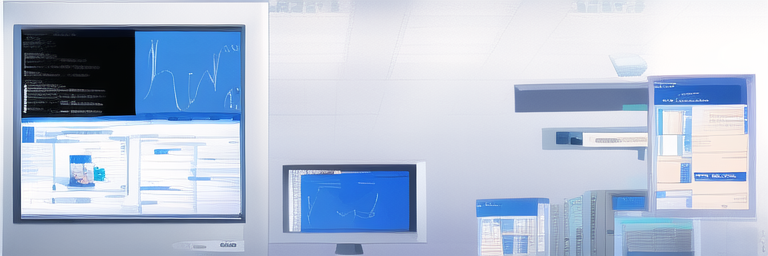What are they?
EMR (Electronic Medical Records) and EHR (Electronic Health Records) are types of software that are used by healthcare providers to manage and store patient medical records. EMR software is typically used by individual doctors or clinics to manage their patients’ records, while EHR software is used by hospitals and other large healthcare organizations to manage the records of all their patients. Both EMR and EHR software allow healthcare providers to quickly and easily access important information about their patients, such as their medical history, allergies, medications, and test results, which can help improve the quality of care they receive.
EMR Software
EMR software, or Electronic Medical Records software, is a type of software used by healthcare providers and hospitals to store, manage, and share patient data. This data includes medical histories, diagnosis, treatments, and other clinical information.
EMR software allows healthcare providers to easily access and share patient data in a secure manner. EMR software helps healthcare providers improve patient care by providing quick access to patient records and a better way to communicate with other healthcare providers. This software can also track patient outcomes and help providers stay organized. Additionally, EMR software can be used to generate reports and track activities, such as lab results, to help healthcare providers spot trends or monitor patient care.
The use of EMR software is important for healthcare providers to meet the legal requirements of the Health Insurance Portability and Accountability Act (HIPAA) and other government regulations. This software also helps healthcare providers protect patient privacy and meet security standards.
EMR software is becoming increasingly important for many healthcare providers, as it allows them to make more informed decisions, communicate more effectively, and provide better patient care. It also helps ensure that patients receive the highest quality of care.
EHR Software
Electronic Health Record (EHR) software is a medical information system designed to store and manage patient data in a digital format. The purpose of EHR software is to provide a secure, organized and easily accessible medical record for each patient. This allows healthcare providers to quickly and accurately update, track and access patient information, ultimately improving patient care and streamlining healthcare processes.
EHR software is typically cloud–based and can be accessed from any device with an internet connection. It is customizable and can be tailored to specific business needs. It includes a variety of features such as patient scheduling, billing and coding, document management, and population health management.
It is essential for healthcare providers to provide quality patient care and adhere to regulatory requirements. It helps to streamline processes and increase efficiency, which can lead to improved workflow and patient satisfaction. The use of EHR software also provides a more accurate picture of a patient’s health history, allowing healthcare providers to better diagnose and treat patients.
EHR software is an invaluable tool for healthcare providers, and its use is becoming increasingly widespread. It is an essential component of modern healthcare and is necessary for providing quality patient care.
Advantages and Challenges
Advantages of EMR and EHR software:
- Improved patient safety: EMR and EHR software provide an up–to–date, comprehensive view of a patient’s medical history, including medication, allergies, and conditions. This helps to reduce the risk of medical errors.
- Easier access to patient information: EMR and EHR software allow doctors, nurses, and other healthcare providers to quickly access patient information in one place.
- Increased efficiency: EMR and EHR software enable healthcare providers to streamline administrative tasks and save time.
- Improved patient experience: By providing access to patient information, EMR and EHR software can help to improve patient satisfaction.
Challenges of EMR and EHR software:
- Cost: Implementing an EMR and EHR system can be costly and require a significant amount of time and resources.
- User adoption: It can be difficult to get healthcare providers to adopt and use new technology.
- Security: EMR and EHR systems store sensitive patient data, making them vulnerable to security breaches.
- Compatibility: EMR and EHR systems must be integrated with existing systems to ensure the accuracy and integrity of patient data.
The Future Outlook
EMR and EHR software are becoming increasingly important in the healthcare industry. The future of EMR and EHR software is expected to be even more advanced and user friendly. Companies are investing heavily in the development of software that is more intuitive and integrated with other healthcare IT systems. AI and machine learning technologies are also being developed to help automate the data entry process and improve the accuracy of medical records. Additionally, the adoption of cloud–based solutions is expected to increase, making data more accessible and secure. Finally, the development of blockchain technology can help ensure the security and privacy of patient data. Overall, the future of EMR and EHR software looks very promising.

